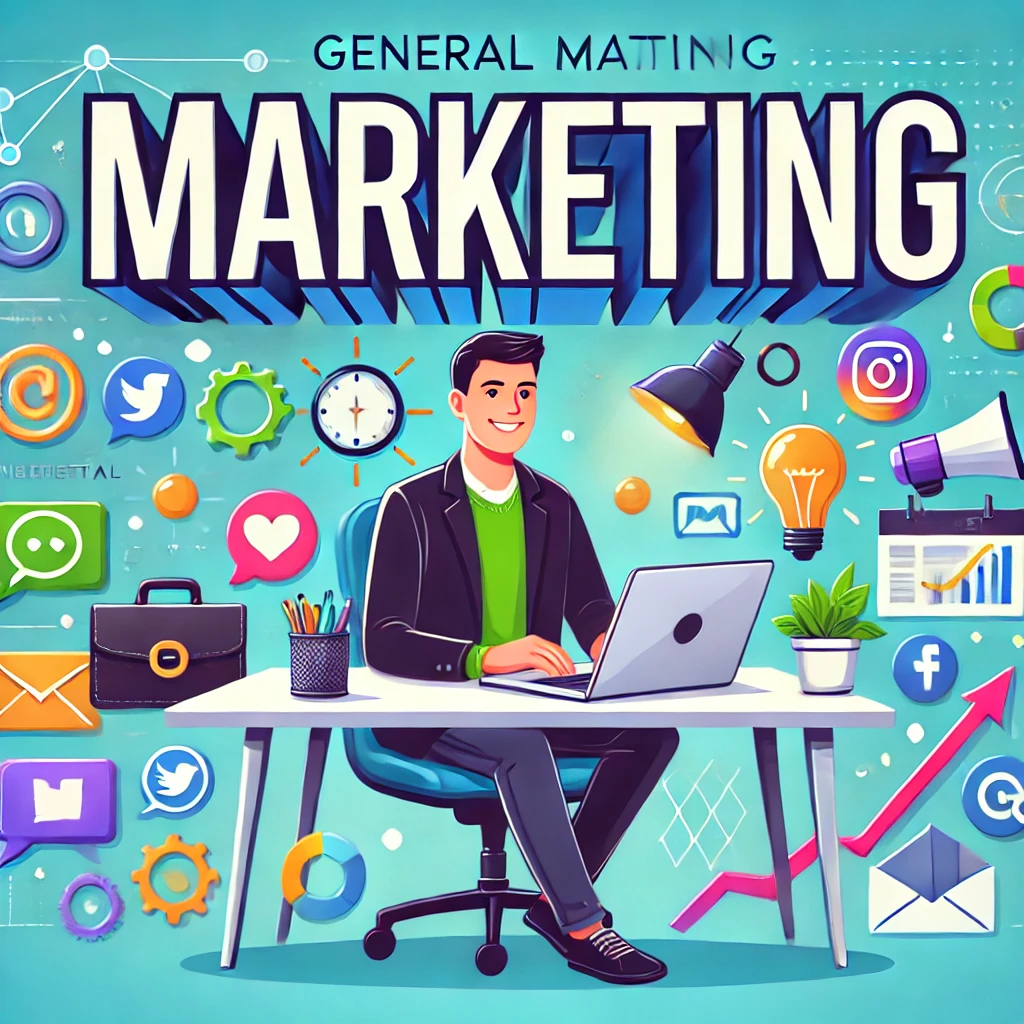Why Digital Marketing Matters Today
In 2025, every business owner has heard the term “digital marketing,” but many still ask what it really means and how it works. Digital marketing is more than just running a few ads online — it’s the practice of using the internet, mobile devices, search engines, social media, email, and paid platforms to reach customers where they spend most of their time. For small and medium-sized businesses, it is the fastest, most cost-effective way to build visibility, generate leads, and convert prospects into paying clients.
What Is Digital Marketing?
Digital marketing is the promotion of products, services, or brands through digital channels. Unlike traditional marketing (TV, radio, print), digital methods are measurable, interactive, and targeted. With tools like Google Ads, Facebook Ads, SEO, and email campaigns, you can control who sees your message, how often, and track the exact results in real time. This makes digital marketing both more efficient and more adaptable than traditional approaches.
Learn How to Build Brand Awareness with Digital Marketing
Core Components of Digital Marketing
- Search Engine Optimization (SEO): The process of improving your website’s visibility on Google to attract organic traffic.
- Pay-Per-Click (PPC) Advertising: Running paid ads on platforms like Google Ads or Bing Ads to capture high-intent searchers.
- Social Media Marketing: Building brand presence on platforms like Facebook, Instagram, TikTok, and LinkedIn to engage with audiences.
- Content Marketing: Creating valuable blogs, videos, and guides to attract and nurture leads.
- Email Marketing: Building relationships and driving conversions through personalized newsletters and offers.
- Analytics & Data: Measuring results, understanding customer behavior, and optimizing strategies over time.

Read More About Meta Ads for Small Businesses
Why Digital Marketing Beats Traditional Marketing
For decades, businesses invested heavily in print ads, billboards, or TV commercials, but these channels lack precise targeting and measurable ROI. Digital marketing gives business owners the ability to:
- Target specific demographics: Age, location, interests, and even behaviors.
- Track every click: See which ads, posts, or emails generate leads.
- Control the budget: Start small, test campaigns, and scale up only when results prove successful.
- Stay competitive: Even small businesses can compete with large corporations by using smart strategies like SEO and retargeting.
Digital marketing doesn’t replace traditional marketing completely, but for most businesses, it provides a faster and more affordable way to grow.
Learn The Best Digital Marketing Strategy in 2025
How the Digital Marketing Funnel Works
Every successful marketing strategy follows a funnel — guiding people from awareness to purchase. In digital marketing, the funnel typically looks like this:
- Top of Funnel (TOFU): Awareness
People discover your brand through social media posts, blogs, SEO, or digital ads. The goal here is visibility. - Middle of Funnel (MOFU): Consideration
Audiences engage with your content, sign up for newsletters, or watch explainer videos. Here, you build trust and demonstrate expertise. - Bottom of Funnel (BOFU): Conversion
Prospects are ready to buy. Paid campaigns, special offers, testimonials, and case studies help convert them into paying clients. - Retention:
The process doesn’t stop at the sale. Email marketing, remarketing, and customer support ensure repeat business and long-term loyalty.
Check: Understanding Digital Marketing Funnels
Why Businesses Need Digital Marketing in 2025
Consumer behavior has shifted permanently. People no longer flip through the Yellow Pages or wait for TV commercials. They search on Google, scroll through TikTok, watch YouTube reviews, and check social media before making decisions. Without digital marketing, businesses risk being invisible where customers are looking.
For small businesses, digital marketing is also a chance to compete with bigger players. With targeted ads and SEO, even a local company can reach high-intent customers at the exact moment they’re ready to take action. The best part? Campaigns can be tracked, refined, and scaled to maximize return on investment.
Explore Healthcare Digital Marketing For Clinics
You Need To Implement Digital Marketing In 2025 Or You Risk Falling Behind The Wheel
Digital marketing is no longer optional — it is the foundation of modern business growth. From SEO and PPC to social media and content strategies, every digital touchpoint moves customers closer to conversion. The good news is you don’t need to master everything at once. Start small, measure your results, and expand strategically.
At Time 4 Marketing, we help businesses build and execute digital strategies that attract attention, generate leads, and drive measurable growth. The question is no longer if you should invest in digital marketing — it’s when. And the best time to start is now.
Go Back To Time4Marketing
